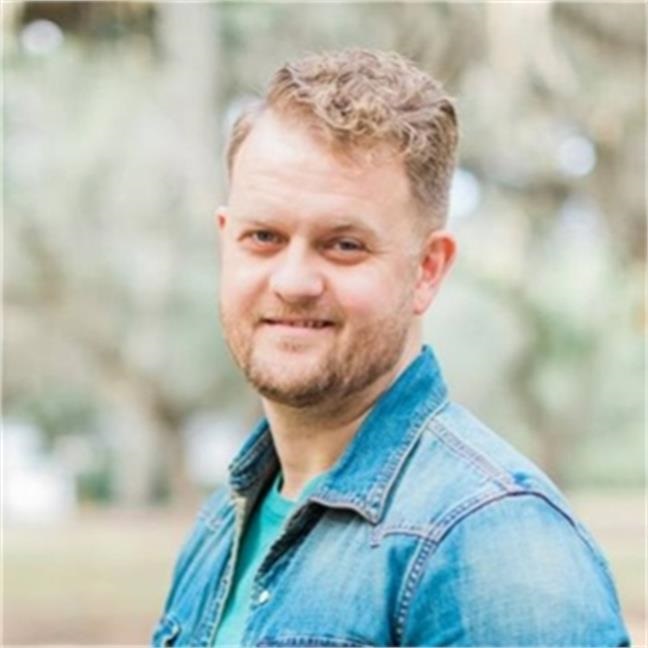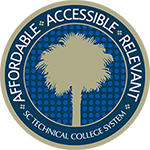Dean of Health Sciences Joey Swearingen is passionate about students and their learning, and he loves to celebrate student success at pinning ceremonies. “To know the challenges students have faced, to hear the student speakers share the anecdotes and inside jokes that made their program unique, to see families supporting their students, to know that they’ve finally made it after a long two years… that always brings me back to my purpose.”
Why is investment in higher education leadership important to you?
I am a lifelong learner; I think that’s why I’m in education. I’ve always been interested in growing and progressing as a leader. And I believe that we have the capacity to lead whether we’re in a traditionally defined leadership position or not. If we’re instructors, we’re leading students. If we’re department heads, we’re leading other faculty. If we’re deans or administrators, we’re leading divisions.
From an institutional standpoint, I like how the CCLA program encourages colleges to identify those individuals in which they see potential. Let’s be honest – external hires can be scary! But with internal candidates, we can know what they bring to the table – especially if we invest in and nurture their leadership potential. It can help with a college’s long-term vision, and instead of facing employment gaps five years from now and looking to recruit externally, the college can be prepared for those changes.
Did you have a favorite class, project, or task during your time in the cohort?
For our very first class, we watched a decade-by-decade video history of the technical college system, which I feel should be required at all of the technical colleges as part of new employee orientation. It was incredibly informative to understand the history of where we came from and how societal changes, population growth, and industry expansion have influenced the workforce dynamics of our state and continue to influence the partnerships we have today. That was one of my favorite things.
I also enjoyed developing my own leadership philosophy and learning about the legal and financial aspects of higher education. I haven’t gotten that kind of knowledge anywhere else. All of it makes me ask myself, “What am I doing well as a leader? In what areas can improve? How can I implement what I’m learning in my day-to-day interactions?”
Tell us about the rigor… honestly.
The independent work – the outside reading, research, papers – were the largest commitment. But two things really helped me. First, I tried to make every assignment applicable to what I do. The assignments are general and allow participants to approach from their unique perspective. So I always tried to do something that I was interested in or that could serve as something I could use in my work in the future. And second, while my job always came first, if I had some time during my day to work on the CCLA coursework, my administration approved of that because it was directly applicable to what I do.
If rigor is someone’s biggest concern, know that the benefits far outweigh that concern. And regarding the independent work… I’m the father of two young boys. I needed to know in advance what the extra work would be like, but it was manageable. Not easy. Not impossible. But a healthy challenge.
What’s one thing you’ve done differently as a leader since participating in the CCLA cohort?
My leadership style is relationship- and servant-based, so one thing I’ve really tried to work on is balancing intentional and random conversations with faculty – not relying too heavily on one or the other. Random conversations are easy and build trust, but intentional conversations take a relationship even further. For instance, when we have evaluations, rather than just requesting a faculty member’s signature, we sit down and really talk about the progress they’ve made or the ways they think they can improve their goals for the future. This gives them more ownership over their role and lets them know that I care and am invested in their growth as an employee.


